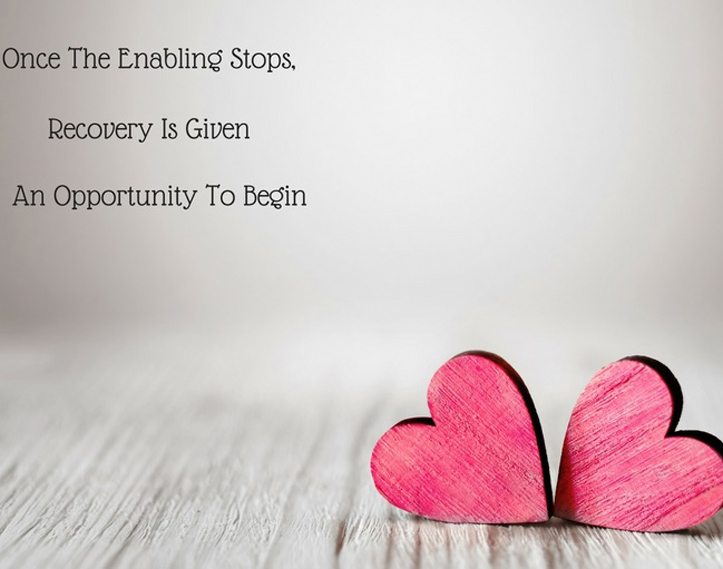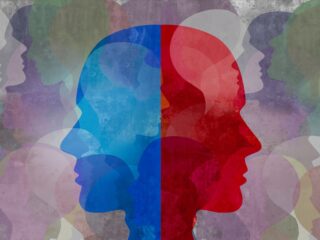It doesn’t take much to become addicted to alcohol or drugs. Of course, nobody ever intends to become addicted to mind-altering substances. In most cases, people underestimate how easy it is to become physiologically dependent on these dangerous intoxicants. They allow their curiosities to drive bad decisions, and before they realize it’s happened they’ve become addicted, at which point you can’t simply stop using the drug. To make matters worse, it’s quite common for budding substance abusers to have enablers in their lives; these are individuals who unknowingly support the substance abuser’s alcohol or drug problem. For this reason, it’s important for people to know when they’re enabling an addict and how harmful that can be.
Oftentimes, we focus on the experience of addiction from the addict’s perspective. After all, it’s the addict that experiences the most direct effects of his or her substance abuse. This includes the physical, health, psychological and the behavioral aspects, and the change in the individual’s lifestyle that results from being a habitual substance abuser. However, there’s a reason why addiction is often referred to as the “family disease”: it affects not just the addict, but virtually everyone in his or her life. In short, addiction is a disease that, once developed, ripples through many lives in addition to the life of the addict.
It can be difficult to understand the disease of addiction when you have little personal experience with substance abuse problems. But if you’re someone who has a loved one suffering from addiction, you know firsthand the deterioration that occurs from this disease. In this situation, it can be frustrating wanting to help the addict while feeling like there’s nothing that can be done. The most important thing is to make sure that you’re not enabling an addict, and that’s what we’re going to be discussing below.
What Exactly Does It Mean to Enable?
Most likely you’ve at least heard of enabling even if you’re not familiar with the concept. By definition, enabling is what occurs when you’re helping an addict in a way that, either knowingly or unknowingly, sustains his or her addiction. Many addicts have enablers in their lives and oftentimes the enablers don’t realize that they are enabling or causing the addict any harm. Enabling almost always comes from a place of good intentions and concern, but it’s often in protecting the addict that the most harm is caused. This might sound a little bit vague, so the following are some of the key ways that addicts’ substance abuse behavior can be enabled.
Protecting the Addict From Consequences
It goes without saying that addicts experience a lot of consequences. Initially, the consequences are mostly limited to their own lives; for instance, their work or school performance and attendance begins to suffer, they begin to have financial problems, and so on. However, as the substance abuse problem becomes increasingly severe, addicts begin to experience more serious problems and profound hardships. This might mean losing their jobs and income, becoming homeless, contracting illnesses, and getting into legal trouble to name but a few.
An addict’s loved ones will often try to shield the addict from many of these consequences, protecting him or her from these various hardships despite the fact that it’s the addict’s own behavior that’s causing these problems. Protecting an addict from the consequences of his or her substance abuse is one of the most common and harmful forms of enabling because it’s preventing the addict from having to deal with the direct repercussions of their substance abuse; without these repercussions, the addict has very little reason to consider sobriety and recovery. This means you will, at some point, have to put your foot down and have a conversation with them about their problem.
Making Excuses for the Addict’s Behaviors
One of the hallmarks of an addict’s thought patterns is denial. Whether it’s that they’re denying that they’re even addict or in denial of the severity of their addictions, denial is an extremely common coping mechanism that addicts use when trying to convince themselves that their hardships aren’t the result of their own actions; instead, they want to believe that there are some external, uncontrollable forces that are causing their problems. When you make excuses for your addicted loved one, it is a prime example of enabling an addict. It’s essentially exonerating them from any blame for their own situations. In other words, making excuses for an addict prevents him or her from being accountable for the repercussions of their alcoholism or drug addiction. Instead, the consequences that result from his or her alcohol or drug abuse are explained as being from something else and making these excuses for an addict confirms those claims and allows the addict to remain in active substance abuse.
Providing Financial Support
It’s inevitable that someone who becomes addicted to alcohol or drugs would begin to have financial troubles. Even when the substance to which the individual has become addicted is relatively inexpensive, the escalation of his or her habit over time will put a larger and larger strain on their financial resource. Eventually, the addict will become unable to support themselves with regard to paying for rent, bills, and other important things. This is often one of the most telling signs that someone has a substance abuse problem: He or she will begin having severe financial trouble without any apparent explanation.
While you may want to help the individual by providing financial support to help him or her stay afloat, it’s important not to do so. The addict will come to rely on and expect that financial support; so instead of realizing the need to get sober so that he or she can support him or herself, the individual will continue using their own money for alcohol or drugs because the individual knows that you will supply any additional money needed to survive. Over time, they will begin using your money for alcohol and drugs, too; it’s even common for addicts to begin stealing from their loved ones. Therefore, it’s essential that you don’t provide financial support, especially when there’s no indication that the addict is going to get help for his or her addiction.
Are You Ready to Get Help for Alcoholism or Drug Addiction?
We have many resources available that will allow you or your addicted loved one to begin the journey back to sobriety and health. To speak with one of our intake specialists about the treatment options that are available, call Ohio Addiction Recovery Center toll-free at 800-481-8457. We’re available anytime, day or night, so call us now for a free consultation and assessment.







